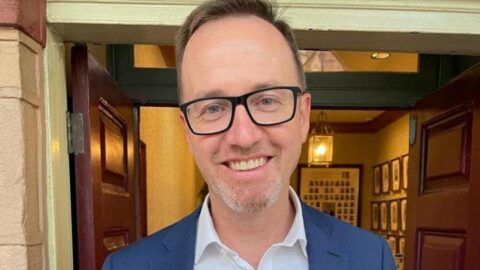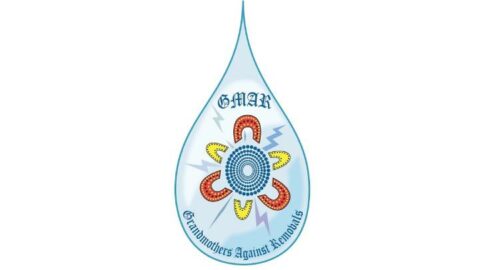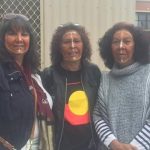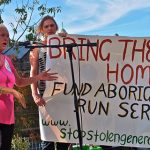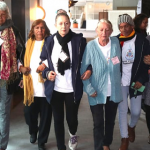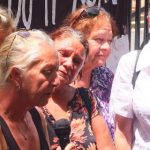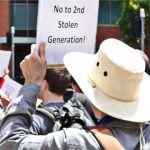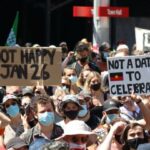A Bill to End Ongoing Stolen Generations Is on the Verge of Becoming Law

A pivotal moment in our state’s history quietly took place on 23 February, as a piece of legislation designed to end the ongoing crisis in forced Aboriginal child removals passed through the NSW Legislative Council.
The laws now have a strong chance of making their way through the state’s lower house.
First Nations groups, prominently Grandmothers Against Removals (GMAR), have long been campaigning against the department’s practice of removing high numbers of First Nations kids and placing them in the wider community. They assert its akin to the Stolen Generations.
The figures back this up. The 2022 Productivity Commission report outlines that last June there were 6,829 First Nations children in out-of-home care, which accounted for 43 percent of all youths in the custody of the state. Yet, Indigenous youth only account for 6 percent of the overall NSW populace.
The laws that were voted through the upper house, despite Coalition affront, were based on UNSW Law Professor Megan Davis’ 2019 Family Is Culture report, which highlights that the principle of placing First Nations kids in non-Indigenous families only as a last resort has all but been abandoned.
NSW Greens MLC David Shoebridge was beaming as his Family Is Culture Bill 2021 made the first hurdle last month, and now he’s campaigning to see the lower house allow these reforms to come to fruition, which will empower First Nations communities and remove some of this state’s shame.
Taking their children away
“The NSW child protection system is still rooted in racist and colonial structures that undervalue First Nations culture and disempower First Nations families,” said Shoebridge. “This explains why Aboriginal children are fifteen times more likely to be taken than non-Aboriginal children.”
“The FIC Bill is based on the fundamental principle that First Nations children belong with kin and on Country, and that First Nations families and Elders know what is best for their families,” he told Sydney Criminal Lawyers. “It’s that simple.”
According to the Greens Justice spokesperson, the Family is Culture report clearly detailed that the Aboriginal and Torres Strait Islander Child and Young Person Placement principles are routinely ignored by the Department of Communities and Justice (DCJ).
Section 13 of the Children and Young Persons (Care and Protection) Act 1998 (NSW) (the Act) stipulates that First Nations children taken into care must first be placed with extended family or kin, then community or a closely located Indigenous family. Non-Indigenous placement is the last resort.
“The system is rigged,” Shoebridge made clear. “Instead of working to keep families together and addressing systemic problems, such as entrenched poverty and inadequate housing and health, it seems designed to take children away.”
Destroying culture and kin
The Baird government commissioned Professor Davis in 2016 to identify the reasons for “high and increasing” First Nations child removals, and she was provided access to the case files for the year 2015-16. And the Cobble Cobble woman delivered 125 recommendations three years later.
“The NSW Coalition said it wouldn’t even begin to look at the legal changes recommended by Megan Davis until 2024,” Shoebridge continued. “This is a life sentence for thousands more kids and families who will be dragged through the system without these essential changes.”
And this is no exaggeration. GMAR’s Helen Eason outlined in 2018 the direct link from being placed in state care to later involvement in the criminal justice system. The Gomeroi and Biripi woman now runs Nelly’s Healing Centre, which focuses on keeping mothers and children together.
So, as the Liberals are taking a nap, Shoebridge has stepped forward with the FIC Bill, which directly enshrines the Davis review’s key recommendations into law, including inserting into the principles of the Act a presumption that removing a First Nations child from their family causes harm.
Lower house considerations
The upper house has passed laws that amend the Act so the DCJ secretary must actively consider tailored alternatives, including the provision of support services, prior to removing a First Nations child from their families. This must be documented and actioned within a 12 month period.
A member of the child’s family can appeal to the Children’s Court if this hasn’t been done. And the bill also sets up a system that requires that court to deliberate upon whether to accept the secretary’s assessment that a First Nations child be placed in long-term out-of-home care.
“We know that every day of delay means more First Nations children are taken from their families, culture and Country,” said Shoebridge on the reforms. “For more than 60,000 years, First Nations families and extended kinship structures have been raising their children in culture and on Country.”
The MLC has also drafted an amendment to section 105 of the Act, which contains a prohibition on publishing the name of any child who has been placed in state care until they are 25 or they’ve died. This “protection” has hindered families in speaking out and been weaponised against state critics.
Proposed section 105(5A) provides a defence for an individual who has published the name of a youth in state care in good faith, in terms of it relating to the child’s safety or wellbeing or it’s been in the public interest.
Sorry means you don’t do it again
Then PM Kevin Rudd apologised for the Stolen Generations in 2008. He acknowledged that for a majority of the 20th century, the settler colonial government had removed thousands of First Nations kids from their families, which was enabled by successive federal and state policies.
However, he failed to mention the practice had never stopped. First Nations children are still being state-sanctioned stolen in NSW, and any Productivity Commission report over the last decade, explains that this is happening right across the continent.
Aunty Hazel Collins founded Grandmothers Against Removals in 2014. The Gomeroi woman explained then that the impacts of the removal of her grandmother and aunty were “still devastating”, and she was campaigning because she’d had grandchildren removed under the current system.
The Victorian state government has just delivered a Stolen Generations reparations package providing $100,000 payments to those individuals who were taken from their families. And thanks to the work of NSW Greens MLC Jan Barham, this state already has such a scheme in place.
But, while reparations are a necessary step towards any form of conciliation, Shoebridge’s bill acts to prevent further circumstances that demand more reparations in generations to come.
Across the line
Shoebridge’s office has spent the last two years developing the laws in the FIC Bill. It’s consulted key stakeholders, like AbSec, the Aboriginal Legal Service, the Association of Children’s Welfare Agencies, grassroots organisations, like GMAR, and the First Nations families who’ve been impacted.
“Despite the government fighting us every step of the way, we built support amongst the Independents, and we met with Labor a number of times and won their backing,” the Greens MLC said on getting the bill through the upper house.
And on it coming up for debate in the lower house in the coming days, he said, “We are committed to making these much-needed reforms law and we are grateful to the wide range of MPs who have stepped up as co-sponsors. This is a case of politics working.”
“The fact we’re close to passing this bill is thanks to the many First Nations mothers, grandmothers and advocates who have led this struggle for years,” Shoebridge ended.
